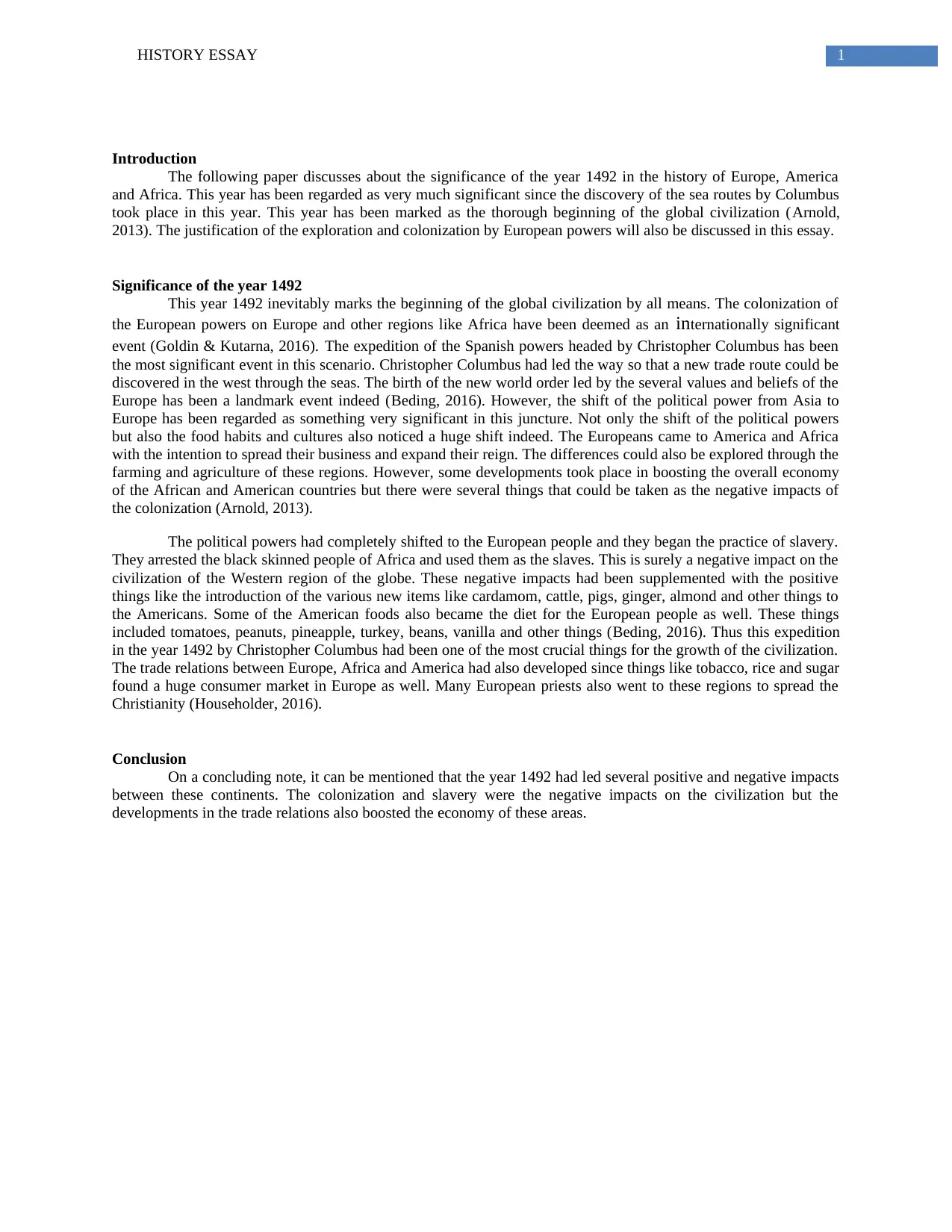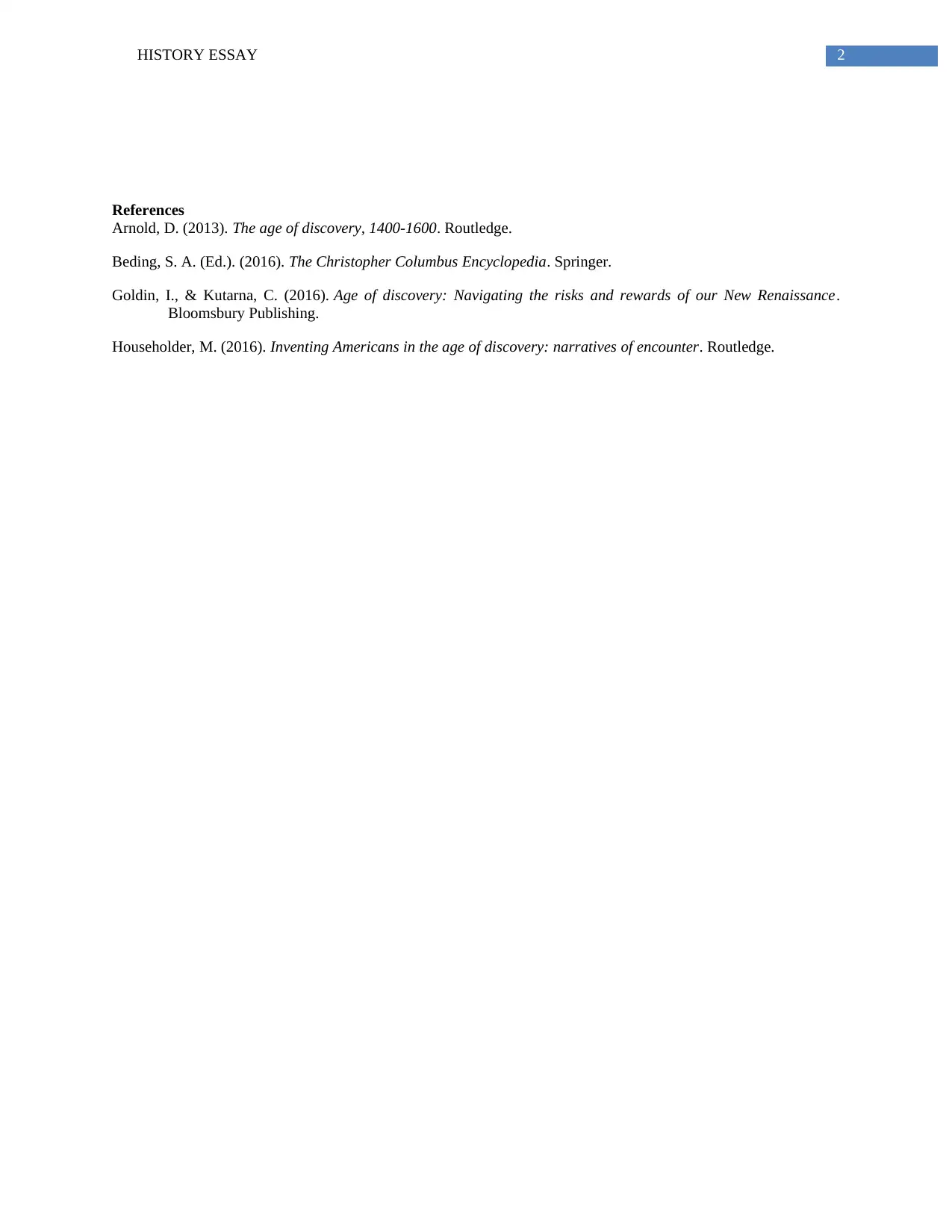The Year 1492: A Historical Essay on Its Impact on Three Continents
VerifiedAdded on 2023/04/21
|3
|679
|334
Essay
AI Summary
This essay delves into the historical significance of the year 1492, emphasizing its role as the beginning of global civilization. It primarily focuses on Christopher Columbus's expedition and the subsequent colonization by European powers in regions like Europe, Africa, and America. The essay explores both the positive and negative impacts of these events, including the shift of political power from Asia to Europe, changes in food habits and cultures, and the development of trade relations. While acknowledging the economic boosts and introduction of new goods, it also addresses the negative consequences such as slavery and political dominance by Europeans. The conclusion highlights the complex legacy of 1492, recognizing both the advancements and detriments that shaped the course of history across these continents.
1 out of 3










![[object Object]](/_next/static/media/star-bottom.7253800d.svg)